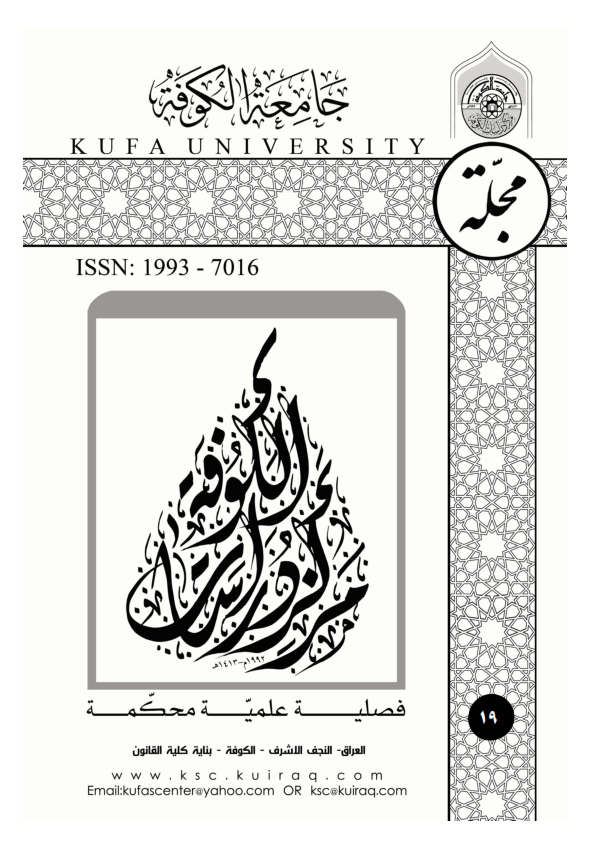Abstract
The research deals with an important topic of proof in Islamic jurisprudence, which is the subject of testimony , where this topic deals with the rights of non-Muslim minorities in proof and the extent of their acceptance in the Islamic judiciary, dealing with the conditions of testimony and the extent to which the testimony of a non-Muslim is accepted on a Muslim
It is the principle that his testimony is not accepted on the Muslim, but there is a case that his testimony can be accepted conditionally , either accepting the testimony of non-Muslims on some of them dealt with the research and the difference between accepting their testimony on other non-Muslims at all or accepting the testimony of each sect on their religion in particular and not others.
It is the principle that his testimony is not accepted on the Muslim, but there is a case that his testimony can be accepted conditionally , either accepting the testimony of non-Muslims on some of them dealt with the research and the difference between accepting their testimony on other non-Muslims at all or accepting the testimony of each sect on their religion in particular and not others.
Keywords
the difference of jurists
The year and its impact
Abstract
يتناول البحث موضوعا مهما من موضوعات الإثبات في الفقه الإسلامي الا وهو موضوع الشهادة , حيث يتناول هذا الموضوع حقوق الأقليات غير المسلمة في الإثبات ومدى قبولها في القضاء الإسلامي فتتناول شروط الشهادة ومدى قبول شهادة غير المسلم على المسلم
فمن المبدأ لا تقبل شهادته على المسلم، ولكن هناك حالة يمكن قبول شهادته بشروط , اما قبول شهادة غير المسلمين على بعضهم فتناول البحث ذلك وفرق بين قبول شهادتهم على غيرهم من غير المسلمين مطلقا او قبول شهادة كل ملة على ملتهم بالخصوص دون غيرهم.
فمن المبدأ لا تقبل شهادته على المسلم، ولكن هناك حالة يمكن قبول شهادته بشروط , اما قبول شهادة غير المسلمين على بعضهم فتناول البحث ذلك وفرق بين قبول شهادتهم على غيرهم من غير المسلمين مطلقا او قبول شهادة كل ملة على ملتهم بالخصوص دون غيرهم.
Keywords
اختلاف الفقهاء
العــــام وأثره
